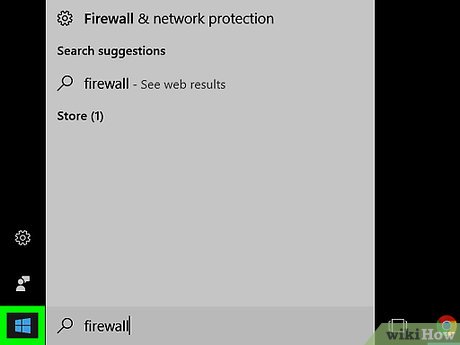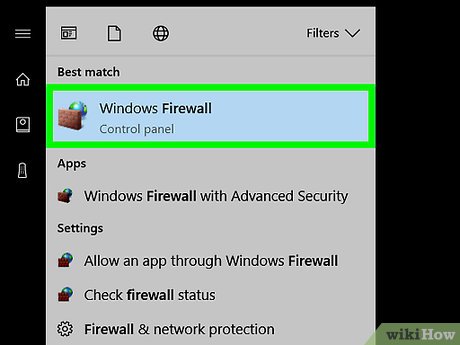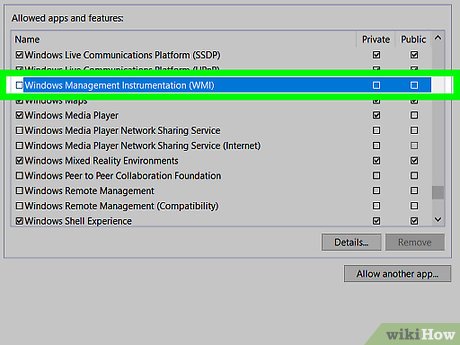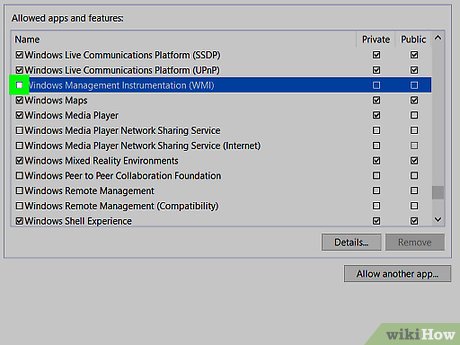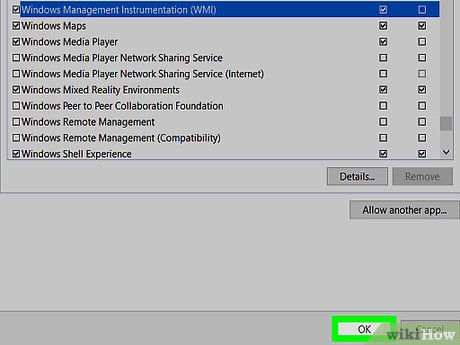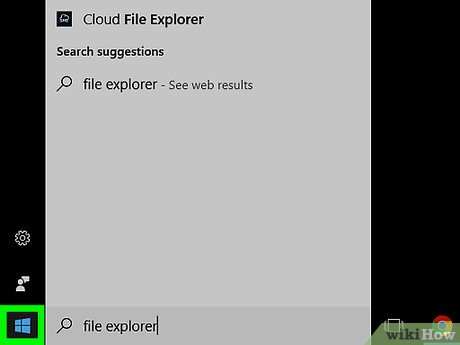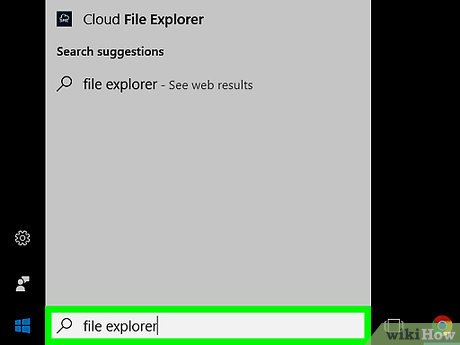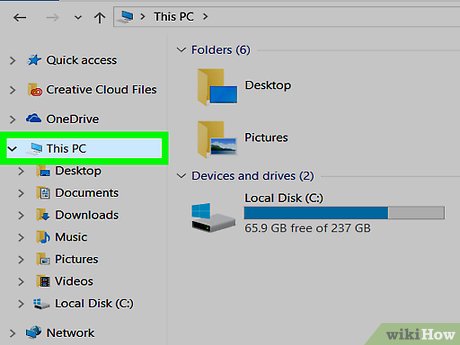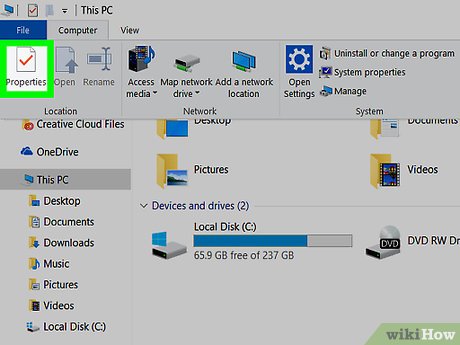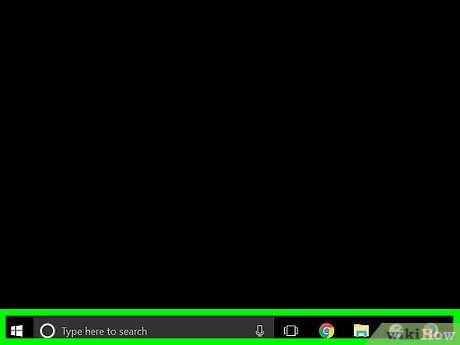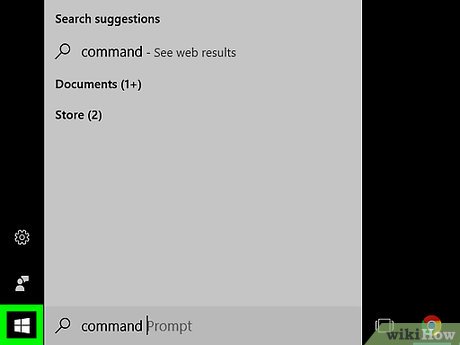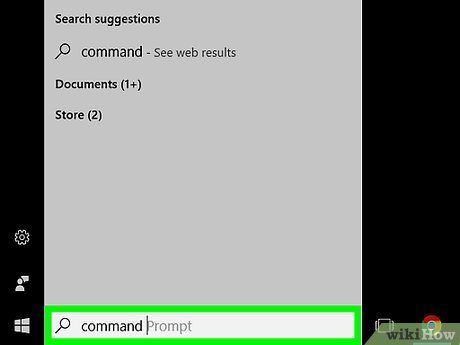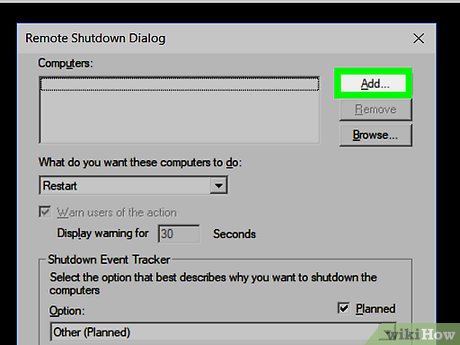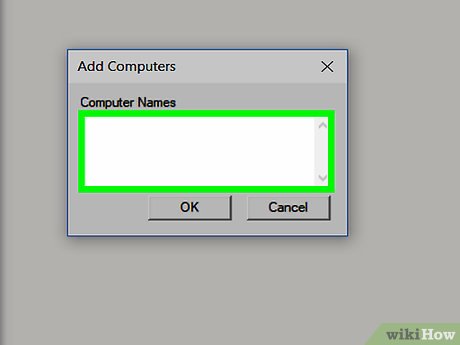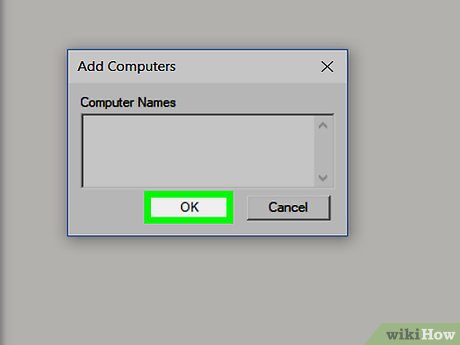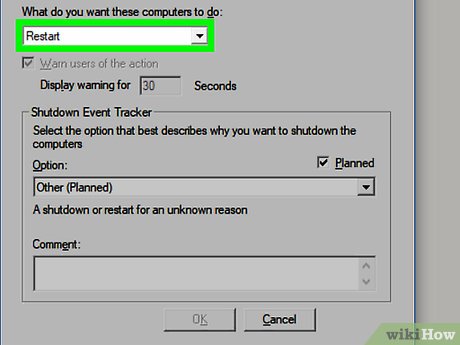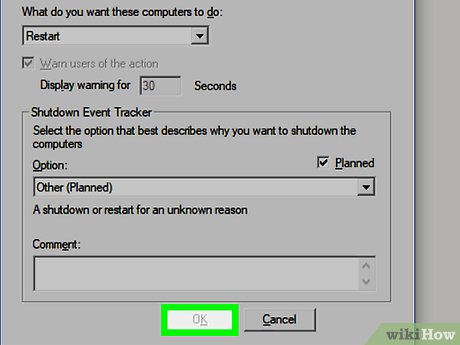How to Remotely Restart a Windows Machine Through Command Line
Part 1 of 4:
Enabling Remote Restart
-
 Make sure that you're on the computer that you want to restart. Before you can remotely restart a computer on your network, you must set up the computer to receive remote instructions.
Make sure that you're on the computer that you want to restart. Before you can remotely restart a computer on your network, you must set up the computer to receive remote instructions. -
 Open Start. Click the Windows logo in the bottom-left corner of the screen.
Open Start. Click the Windows logo in the bottom-left corner of the screen.
-
 Type services into Start. Doing so searches the computer for the Services app.
Type services into Start. Doing so searches the computer for the Services app. -
 Click Services. It's a gear-shaped app at the top of the Start window. The Services window will open.
Click Services. It's a gear-shaped app at the top of the Start window. The Services window will open.- If this option doesn't appear, type services.msc into Start to force it to appear.
-
 Scroll down and click Remote Registry. It's in the "R" section of the main window. Clicking Remote Registry selects it.
Scroll down and click Remote Registry. It's in the "R" section of the main window. Clicking Remote Registry selects it. -
 Click the "Properties" icon. It's a grey box with a folder on it just below the View tab at the top of the window. The Properties window will open.
Click the "Properties" icon. It's a grey box with a folder on it just below the View tab at the top of the window. The Properties window will open. -
 Click the "Startup type" drop-down box. This box is to the right of the "Startup type" heading in the middle of the window. A drop-down menu will appear.
Click the "Startup type" drop-down box. This box is to the right of the "Startup type" heading in the middle of the window. A drop-down menu will appear. -
 Select Automatic. Click Automatic in the drop-down menu.
Select Automatic. Click Automatic in the drop-down menu. -
 Click OK. It's at the bottom of the window. Doing so enables remote restart on this computer.
Click OK. It's at the bottom of the window. Doing so enables remote restart on this computer.
Part 2 of 4:
Allowing Remote Restart in Firewall
-
 Open Start. Make sure you're still using the computer that you want to remotely restart.
Open Start. Make sure you're still using the computer that you want to remotely restart.
-
 Type firewall into Start. This will search for the Windows Firewall app.
Type firewall into Start. This will search for the Windows Firewall app. -
 Click Windows Firewall. It's an image of a brick wall and a globe. You'll find it at the top of the Start window.
Click Windows Firewall. It's an image of a brick wall and a globe. You'll find it at the top of the Start window. -
 Click Allow an app or feature through Windows Firewall. This link is in the top-left corner of the window. Doing so opens a list of all programs and services on the computer.
Click Allow an app or feature through Windows Firewall. This link is in the top-left corner of the window. Doing so opens a list of all programs and services on the computer. -
 Click Change settings. It's above the upper-right corner of the list of programs. Clicking it unlocks the list of programs.
Click Change settings. It's above the upper-right corner of the list of programs. Clicking it unlocks the list of programs. -
 Scroll down to the "Windows Management Instrumentation (WMI)" option. You'll find this near the bottom of the list of programs.
Scroll down to the "Windows Management Instrumentation (WMI)" option. You'll find this near the bottom of the list of programs. -
 Check the "Windows Management Instrumentation" box. It's to the left of this option.
Check the "Windows Management Instrumentation" box. It's to the left of this option.- If the computers you're using are on a public network, you'll also need to check the "Public" box on the far-right side of the page.
-
 Click OK. It's at the bottom of the window. This computer will no longer block remote access in Firewall.
Click OK. It's at the bottom of the window. This computer will no longer block remote access in Firewall.
Part 3 of 4:
Finding the Computer's Name
-
 Open Start. Again, you'll need to do this on the computer that you want to restart, not the computer from which you send the "Restart" command.
Open Start. Again, you'll need to do this on the computer that you want to restart, not the computer from which you send the "Restart" command.
-
 Open File Explorer. Click the folder-shaped icon in the Start window.
Open File Explorer. Click the folder-shaped icon in the Start window.
-
 Click This PC. It's a computer-shaped folder on the left side of the File Explorer window.
Click This PC. It's a computer-shaped folder on the left side of the File Explorer window. -
 Click the Computer tab. This option is in the upper-left side of the window. A toolbar will appear below the tab.
Click the Computer tab. This option is in the upper-left side of the window. A toolbar will appear below the tab. -
 Click Properties. It's a red checkmark on a white box in the far-left side of the toolbar. This will open the Properties page for this computer.
Click Properties. It's a red checkmark on a white box in the far-left side of the toolbar. This will open the Properties page for this computer. -
 Note the computer's name. You'll find the "Computer name" section under the "Computer name, domain, and work group settings" heading in the middle of the page.
Note the computer's name. You'll find the "Computer name" section under the "Computer name, domain, and work group settings" heading in the middle of the page.- Make sure you write down the name exactly as it appears in this menu.
Part 4 of 4:
Restarting via Command Prompt
-
 Open another computer on your network. This computer must have administrative privileges, and it must be on the same network as the computer that you want to restart.
Open another computer on your network. This computer must have administrative privileges, and it must be on the same network as the computer that you want to restart. -
 Open Start. Click the Windows logo in the bottom-left corner of the screen.
Open Start. Click the Windows logo in the bottom-left corner of the screen.
-
 Type cmd, then press ↵ Enter. This should open Command Prompt.
Type cmd, then press ↵ Enter. This should open Command Prompt. -
 Type shutdown /i into Command Prompt, then press ↵ Enter. This command brings up a window from which you can remotely restart the other computer.
Type shutdown /i into Command Prompt, then press ↵ Enter. This command brings up a window from which you can remotely restart the other computer. -
 Click Add…. It's on the right side of the window. Doing so opens another window.
Click Add…. It's on the right side of the window. Doing so opens another window. -
 Enter the other computer's name. Type the name of the computer that you want to restart into the text field in the window.
Enter the other computer's name. Type the name of the computer that you want to restart into the text field in the window.- If you didn't find the computer's name earlier, do so before continuing.
-
 Click OK. It's at the bottom of the window.
Click OK. It's at the bottom of the window. -
 Make sure the computer is set to restart. In the "What do you want these computers to do" section, click the drop-down box and select Restart if it isn't displayed here.
Make sure the computer is set to restart. In the "What do you want these computers to do" section, click the drop-down box and select Restart if it isn't displayed here.- You can also check or uncheck the option to deliver a warning to the user of the computer before shutting down, or you can adjust the time limit to restart (the default is 30 seconds).
-
 Click OK. It's at the bottom of the window. This will prompt the other computer to restart as soon as the selected time limit expires.
Click OK. It's at the bottom of the window. This will prompt the other computer to restart as soon as the selected time limit expires.
Share by
Lesley Montoya
Update 04 March 2020










